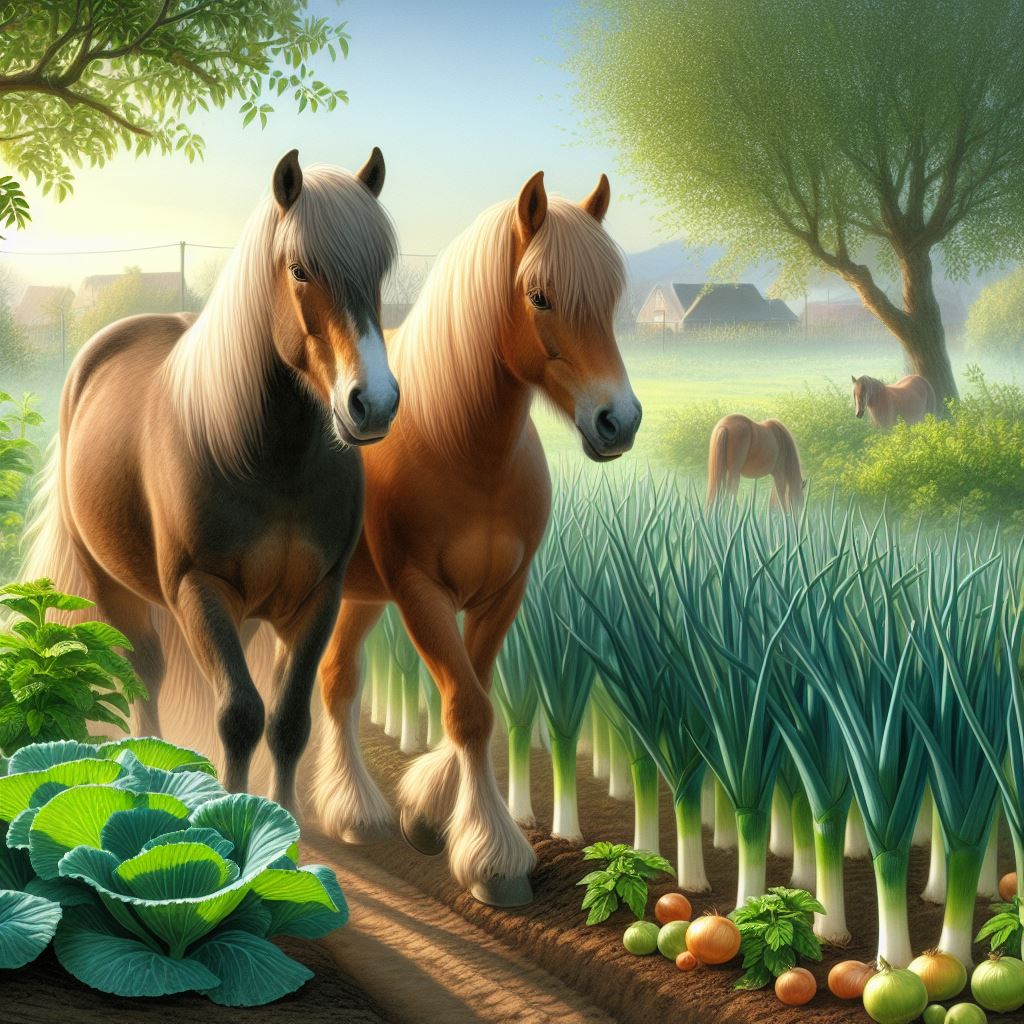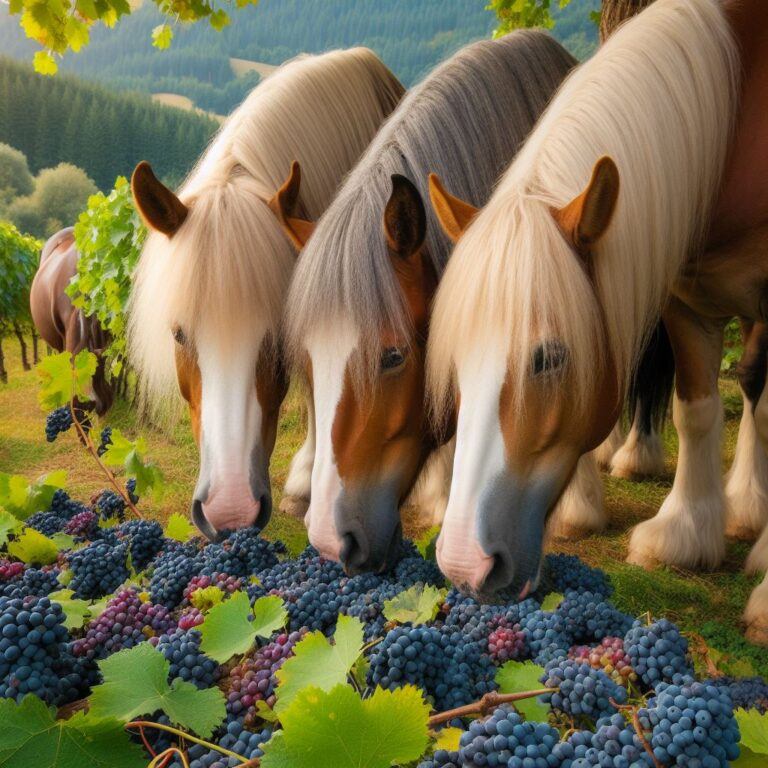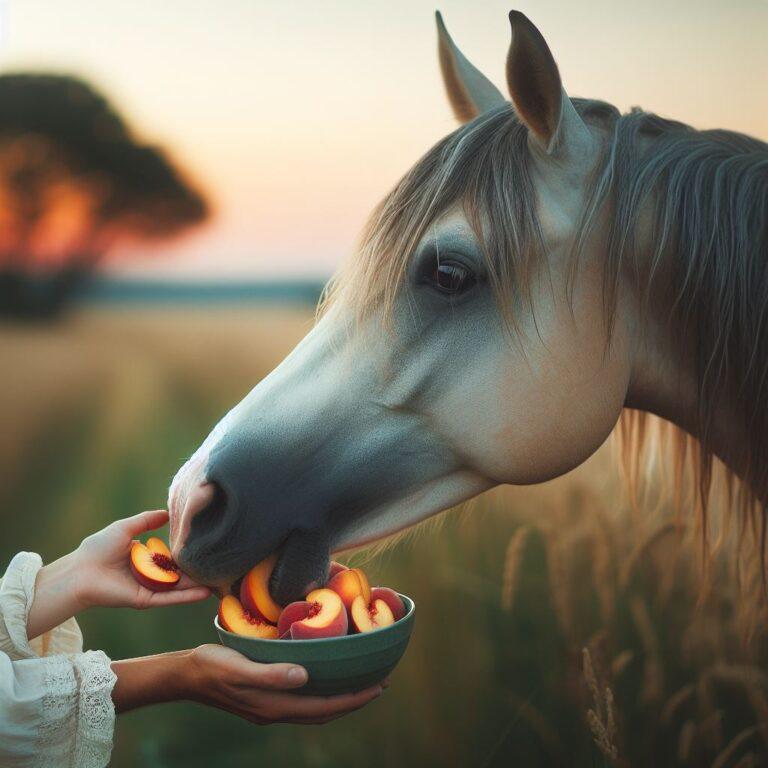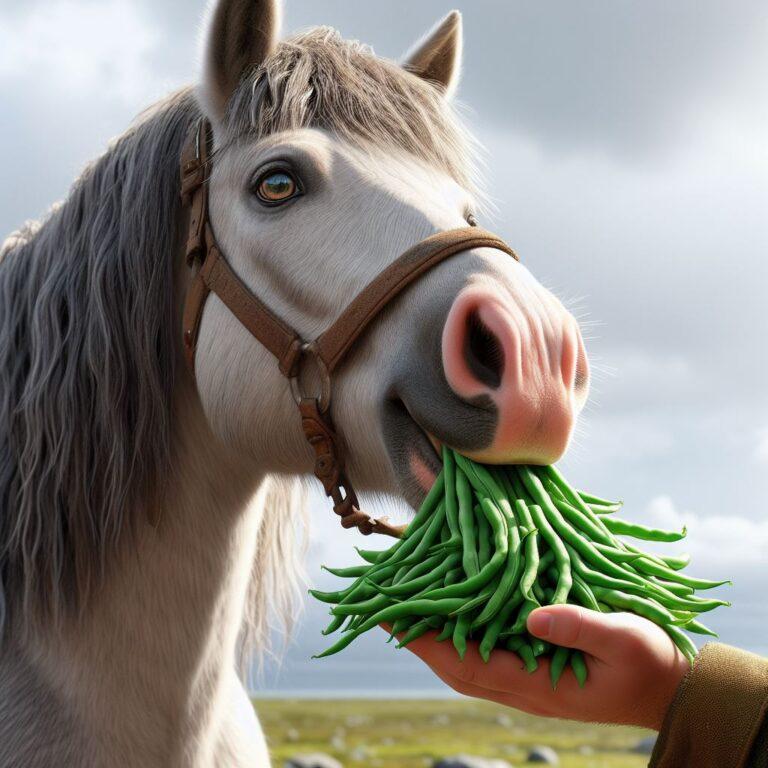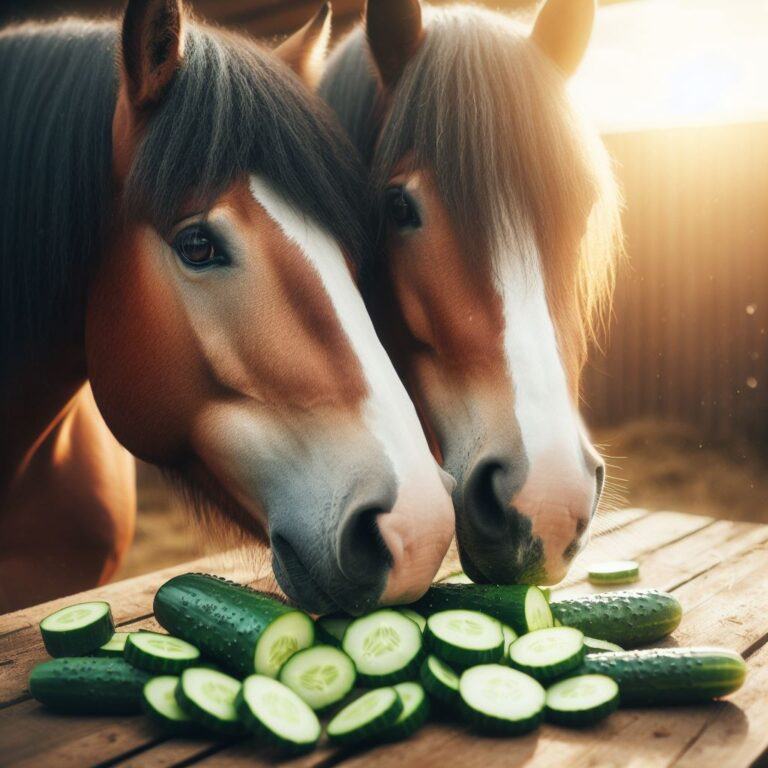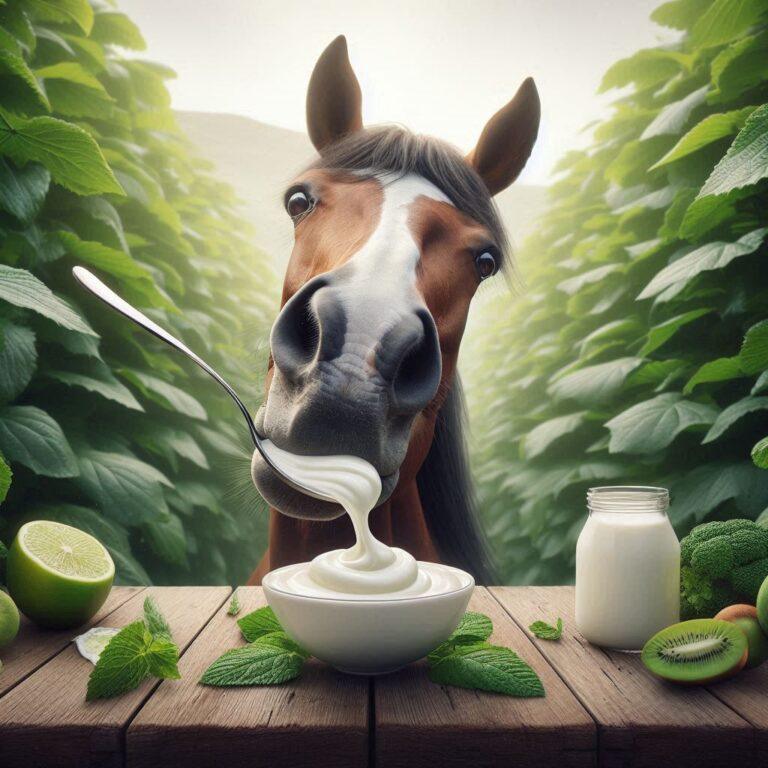Can Horses Safely Eat Leeks
No, horses cannot safely eat leeks. These vegetables belong to the Allium family, which also includes onions and garlic, and can cause hemolytic anemia in horses—a condition where red blood cells break down. Consuming leeks might lead to other health issues such as colic and irritation of the mouth and digestive tract.
The reason leeks are harmful to horses lies in their chemical composition. Leeks contain organosulfur compounds that can damage red blood cells in our horses, leading to oxidative damage and a decrease in the ability of the horse’s blood to carry oxygen.
This is particularly dangerous and can manifest in weakness, jaundice, and rapid breathing if consumed in large amounts.
It’s essential for horse owners to recognize the presence of certain compounds in leeks such as N-propyl disulfide and thiosulfate.
Even in small doses, these can be detrimental to a horse’s well-being, proving that leeks are not a suitable treat under any circumstances.
Horse nutrition requires careful consideration and management, emphasizing the importance of understanding what foods are safe and which are not for horses.
Leeks, despite being nutritious for humans, fall squarely into the not-safe category for our horses.
Understanding Horse Dietary Needs and Restrictions
Horses have unique dietary needs that must be carefully managed to ensure their health and well-being.
As herbivores with a specialized digestive system, they require a diet mainly consisting of hay, fresh grass, and specialized feeds designed to meet their nutritional requirements.
It’s important to understand that not all plants are safe for our horses, and some can be downright dangerous.
Among the list of harmful sustenance for horses are certain fruits, vegetables, plants, and even trees.
For example, onions, garlic, and, as previously mentioned, leeks are all members of the allium family and can cause oxidative damage leading to anemia in horses.
Chocolate, caffeine, and avocado are also surprisingly dangerous and should be avoided.
The severity of a horse’s reaction to toxic foods can vary. While some horses might experience mild discomfort, others could suffer from more severe health issues. That’s why, as responsible horse owners, it’s our responsibility to be diligent at all times
Introducing any new food into your horse’s diet should always be done with caution and under the guidance of a veterinarian.
A professional can help you to identify safe options and provide advice tailored to your horse’s health history and nutritional needs.
Always observe your horse after introducing new foods, even those deemed safe, for any signs of distress or allergic reactions. Doing so ensures you can respond quickly to any negative changes in their health.
Nutritious Treats to Feed Your Horse Instead of Leeks
It’s clear that leeks are off the menu for our horses, but that doesn’t mean your options for treats are limited. Offering horses a variety of safe fruits and vegetables can provide enrichment and nutritional benefits.
Apples and carrots are classic favorites that most horse owners are familiar with. They’re not just popular, they’re nutritionally sound as occasional treats in moderation. Remember, though, to cut them into appropriate sizes to prevent choking.
For something a little different, consider foods like watermelon, bananas, and pumpkin. These are not only safe but also packed with nutrients that can be good for your horse when given in the right amounts.
Introducing new foods should be done gradually. Start with small portions and monitor your horse’s response. If there’s no adverse reaction, you can slowly increase the amount.
Lastly, always keep a close eye on your horse after feeding a new treat. Watch for any signs of discomfort, changes in bowel movements, or allergic reactions.
If anything seems amiss, STOP offering the new food and consult your veterinarian immediately.

